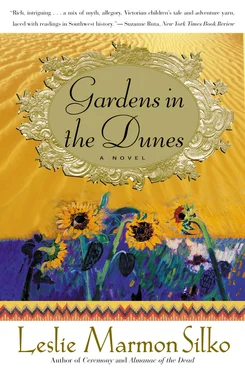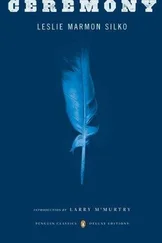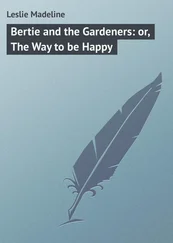After the farmer was gone, everyone crowded closer to get a good look at her. The younger children touched her dress and her shoes shyly.
“You must be from the Carlisle Indian School,” the big woman said. “They put students to work for white people in the summer.”
Indigo shook her head.
“No?” The woman looked puzzled, then shook her head slowly and smiled. “You must be hungry.”
Indigo nodded her head vigorously.
“Come on, this way,” the big woman said and took her by the hand.
Behind the houses and shacks, Indigo saw a number of people who appeared to be digging in the sand not far from the water’s edge. An old man and two boys each carried baskets of odd white rocks to the hole. When Indigo got closer she saw the hole was actually a cooking pit lined with smooth flat stones nestled in a thick layer of hot coals. The baskets of flat smooth rocks were emptied into the cooking pit and then the pit was covered with large flat stones. Everyone sat down with their baskets by their feet while they waited for the meal to cook. Indigo was quite interested to learn how the people cooked and ate the odd flat rocks they gathered on the beach; Sand Lizard people knew how to eat nearly everything but they didn’t know how to cook and prepare rocks. She expected the rocks might have to cook overnight, but it wasn’t long before the flat stones were removed and the people began to use their baskets to scoop up the steaming white rocks.
How amazing! In just that short time, the flat white rocks cooked and cracked open. A little animal lived inside. Indigo watched the other children scoop out its remains, and she copied their example. The meat felt a little odd when she bit into it, but its ocean flavor was wonderful. Indigo ate until there was a small mound of shells on the ground in front of her. The other children no longer stared at her, and as they finished eating, they drifted away in the direction of the ocean’s edge. When she noticed the big woman gathering up the shells, Indigo began to help her. They put them in a large old basket by the front door of her little house. Next to the basket was an old bench with a flat stone, the sharpened tip of a deer antler, and a black flint chisel; nearby lay a clamshell with a circle cut out of the shell’s thickest edge. The flat stone had long grooves worn into it; bits of shell dust glittered on the stone’s surface. While Indigo looked at her workbench, the big woman brought out a small flat basket from inside the shack.
“Look,” the woman said as she scooped up a big handful of the shining shell disks and let them cascade back into the basket. Indigo turned the disk over and over in her hand. One side of the disk was pure white shell but the other side was a silvery rainbow of color. The woman held up the antler chisel and the flint awl, then put one of the shell disks on the flat rock; she took a stone hammer and began to gently tap the antler chisel into the center of the shell disk. When she had made an indentation on the shell, she reached for the flint awl and began to roll it rapidly between her hands, to drill a hole in the shell. When one tiny hole was completed, she drilled another.
“A button,” she said as she handed the finished work to Indigo. Fifty buttons brought a quarter, and with a quarter they bought lard, flour, and salt to supplement the clams and fish.
“Where are your gardens?” Indigo wanted to know. The woman pointed at the hills above the beach, where Indigo saw only weeds and shrubs. The woman looked at the hills for a long time and Indigo understood her silence as her answer; the land where their gardens used to grow was taken.
Yet they possessed a last, great, bountiful farm, the woman said with a smile as she turned from the hills to the heaving restless blue ocean. Indigo watched as the woman waded into the water and bent over and picked up a long strange ribbonlike plant with a knob on the end. In a tiny freshwater stream that emptied in the ocean, the woman showed Indigo how to rinse off the kelp with freshwater before she cut it into pieces for drying in the shallow basket hanging from the ceiling of the shack. Once the washed seaweed was dried, it tasted much better. She passed Indigo a smaller basket with odd dark pieces of dried seaweed for Indigo to try. The smell of the ocean was strong on the dried kelp as she raised it to her mouth, and at first she only licked the kelp with the tip of her tongue. The faintly salt taste and the strange texture were interesting, so she put the whole piece in her mouth. Dried kelp was surprisingly good. The woman smiled, but then her expression became serious.
“Were the people who brought you here unkind? Is that why you ran away?”
Indigo shook her head. “I didn’t run away,” she said. “I was just going for a walk when those men grabbed me.”
“Then the people who brought you will be very upset, and they’ll come searching for you.” Indigo nodded. The big woman was nice and the other people and children were friendly, but she was beginning to feel a little tired now. Those men who grabbed her got her lost. Why was it no one ever let her go where she wanted? Sister Salt and Mama would be worried about her by now; they might think she was dead. Indigo sat on the little log stool and did nothing, when big hot tears began to roll down her cheeks.
Edward rode east for nearly two miles along paths in the old-growth trees that crowned the ridge above the sea. From time to time he encountered vast clear-cut sites where excavations for foundations were under way or construction already begun. He rode until he was satisfied no child could have walked such a distance, then turned the horse back.
Hattie was annoyed the farmers had taken Indigo away. She could imagine the child’s terror, and it was all so needless because Indigo had pointed to the house, but the farmers refused to believe her. Mr. Abbott asked Lloyd to trot the team a bit faster when he saw the expression on Hattie’s face; he had not seen such fierce determination since the debate over her thesis topic.
“Glen Cove? There aren’t any Indians in Glen Cove!” Hattie exclaimed. Time was passing and still they had not found her. Mr. Abbott patted Hattie on the back and reassured her; Lloyd knew of some Indian families living on the salt marshes just outside of Glen Cove, on Manhasset Bay.
“I didn’t know there are Indians nearby!” Hattie exclaimed. Lloyd nodded his head and glanced over his shoulder at Hattie. He held the reins in one hand to point at the peninsula of land ahead of them. Hattie could see a few small shacks in the sand above the salt marsh and shore.
A large Indian woman was standing outside the shack to greet them as the buggy pulled up. She was smiling but scrutinized her visitors.
“We were told we might find a lost Indian girl here,” Mr. Abbott began. The woman nodded.
“A tired little girl,” she said. “Please come inside. She’s asleep.”
Mr. Abbott and Hattie followed the woman inside the shack. On a pallet in the corner, covered with an old quilt, Indigo was sound asleep. The Indian woman knelt down and spoke softly to Indigo.
“Wake up, dear. Your friends are here,” she said. Indigo sat up with her eyes open wide. For an instant she did not know where she was, but then she remembered the ride in the farmer’s wagon. Hattie knelt next to her.
“Oh Indigo, I’m so sorry this happened!” Indigo rubbed her eyes and got to her feet. As she lifted Indigo into the buggy, Hattie thanked the big woman again and again for her kindness to Indigo. Her father reached down from the buggy seat and extended two silver dollars in his hand, but the Indian woman refused the money.
“If she needs a place to stay, please remember she is welcome here,” the woman said as Lloyd lifted the reins.
Читать дальше












